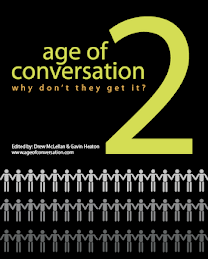If you are part of any type of organization, be it a global corporation, a non-lucrative organization, an education institution or simply the member of a family or a group of friends at least once, but surely a lot more than that you’ve had to provide and receive feedback on your work, your performance, your behavior, your proposals, your ideas or about the people you surround yourself with or just about whether or not you think a situation is right or wrong.
Without a doubt everybody, and I mean everybody receives and provides constant feedback all of the time, but sadly though, the fact that we do it often does not mean that we know how to do it right, no matter if we hold an executive title or if we’ve had prior training on the matter.
That is why I wanted to share 3 reasons why I am convinced that we should never provide personal feedback through e-mail:
- All feedback needs to be provided in a timely punctual fashion. If the reason why you need to provide your feedback to someone else is so important, you cannot wait until the other person receives, reads and digest what you have to say, much less can you assume that the person is going to do it right after you click on send; so if you are going to share your point of view and provide some feedback to help another person improve or correct an action, you have the moral obligation of doing it face to face.
- They say that feedback is a gift. And a gift is a present, so how exactly can you give it if you are not present? To give feedback you have to be physically and emotionally present at the place and time when you give it.
- And the most important reason why I think that we must never provide feedback via e-mail, I learned from the a book titled How to Wow from author Frances Cole, in which she mentions the results from a research done by UCLA’s Professor Emeritus in Psychology Albert Mehrabian , that states that from all our interpersonal communication only 7% of our influence comes from the words we say, 38% comes from the tone in which we say those words and 55% from our corporal expression while we say them. And since in an e-mail we cannot add any tone (38%), much less show our body language (55%) we are relaying on a 7% of probability that our message will actually and completely go through.
So I have to ask: How are you providing feedback now a days? Because as if these three reasons were not enough, when you give your feedback through e-mail you risk being seen as either imposing your ideas or your instructions instead of trying to help someone.



